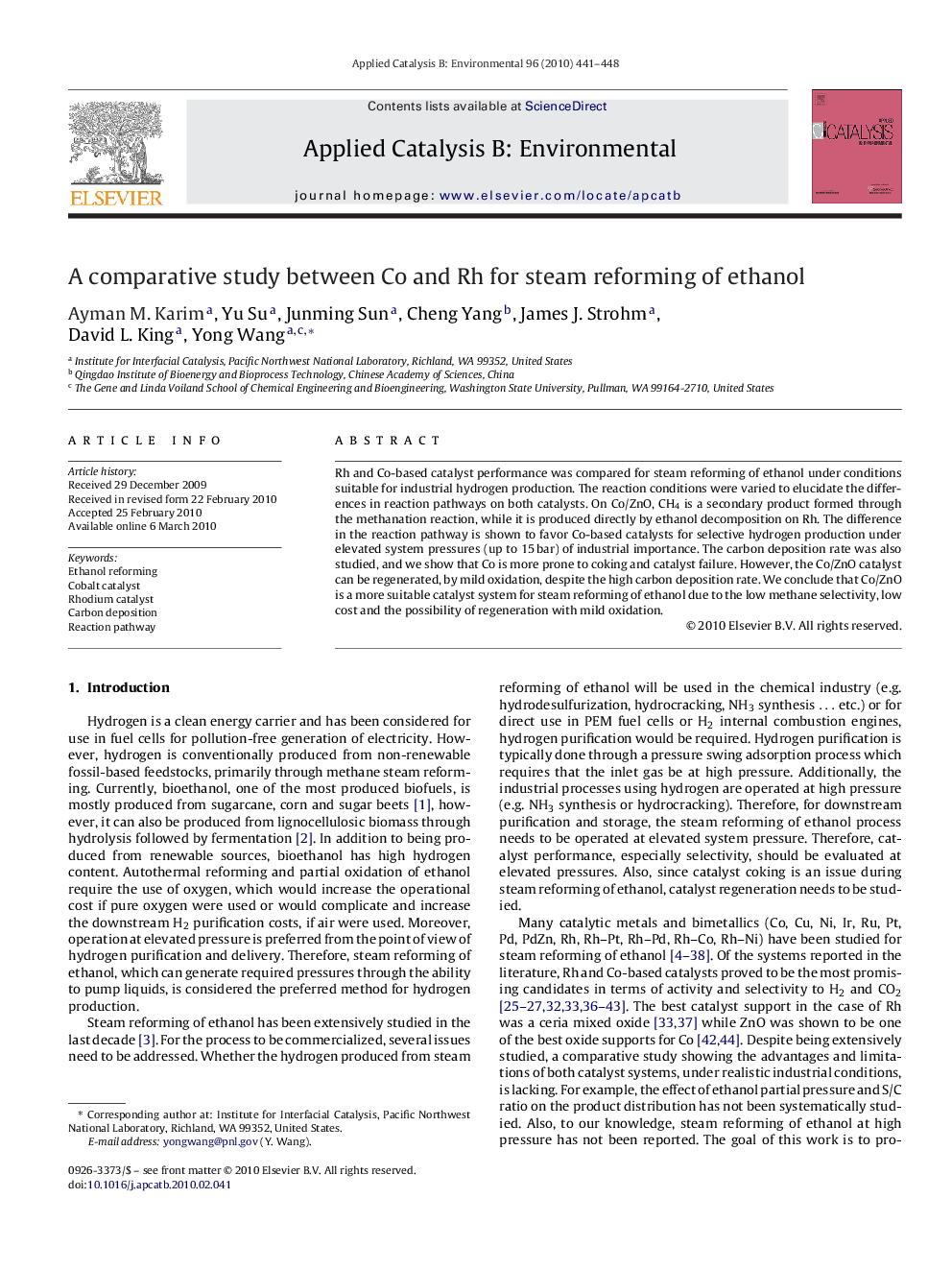| Article ID | Journal | Published Year | Pages | File Type |
|---|---|---|---|---|
| 47389 | Applied Catalysis B: Environmental | 2010 | 8 Pages |
Rh and Co-based catalyst performance was compared for steam reforming of ethanol under conditions suitable for industrial hydrogen production. The reaction conditions were varied to elucidate the differences in reaction pathways on both catalysts. On Co/ZnO, CH4 is a secondary product formed through the methanation reaction, while it is produced directly by ethanol decomposition on Rh. The difference in the reaction pathway is shown to favor Co-based catalysts for selective hydrogen production under elevated system pressures (up to 15 bar) of industrial importance. The carbon deposition rate was also studied, and we show that Co is more prone to coking and catalyst failure. However, the Co/ZnO catalyst can be regenerated, by mild oxidation, despite the high carbon deposition rate. We conclude that Co/ZnO is a more suitable catalyst system for steam reforming of ethanol due to the low methane selectivity, low cost and the possibility of regeneration with mild oxidation.
